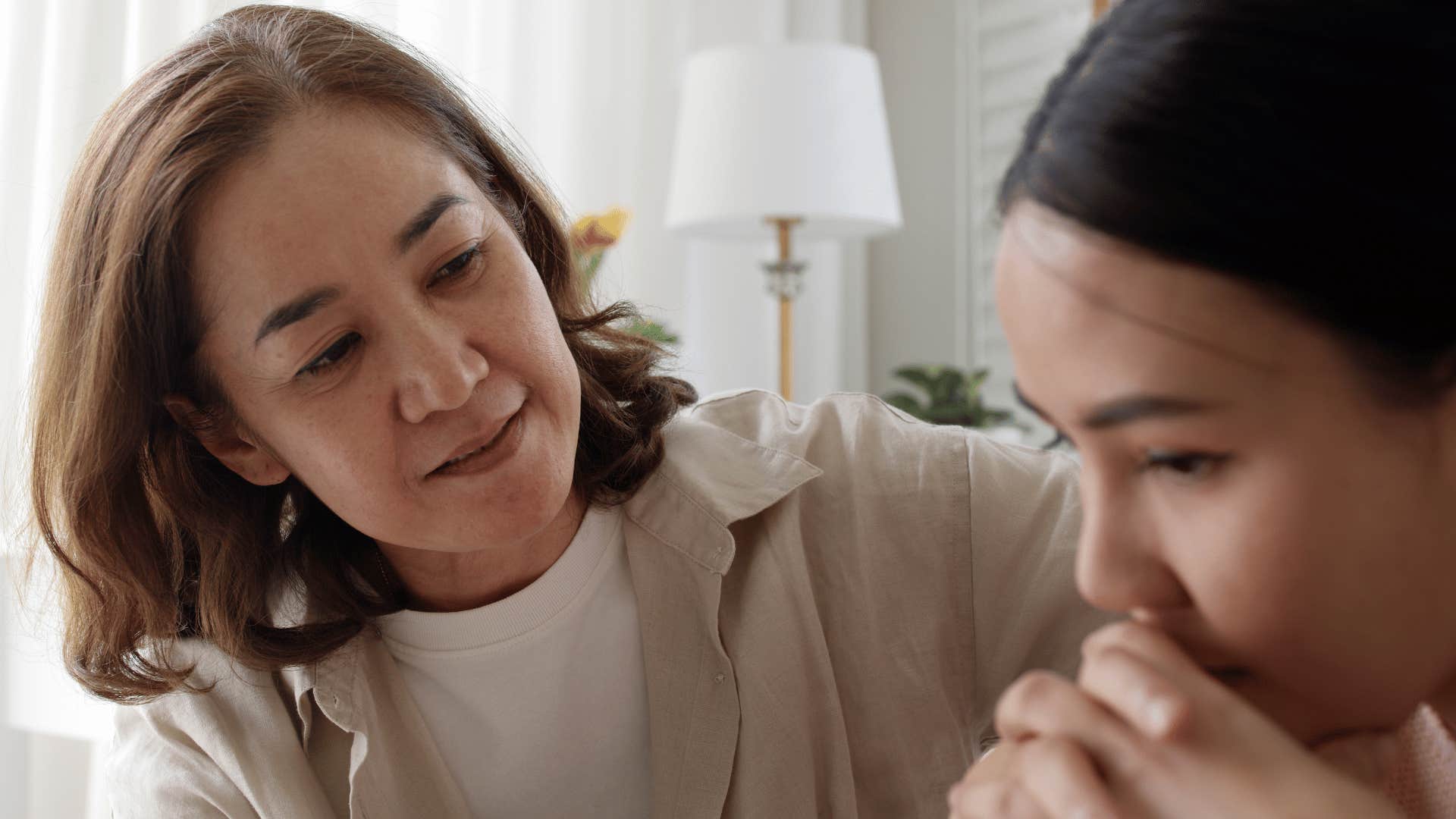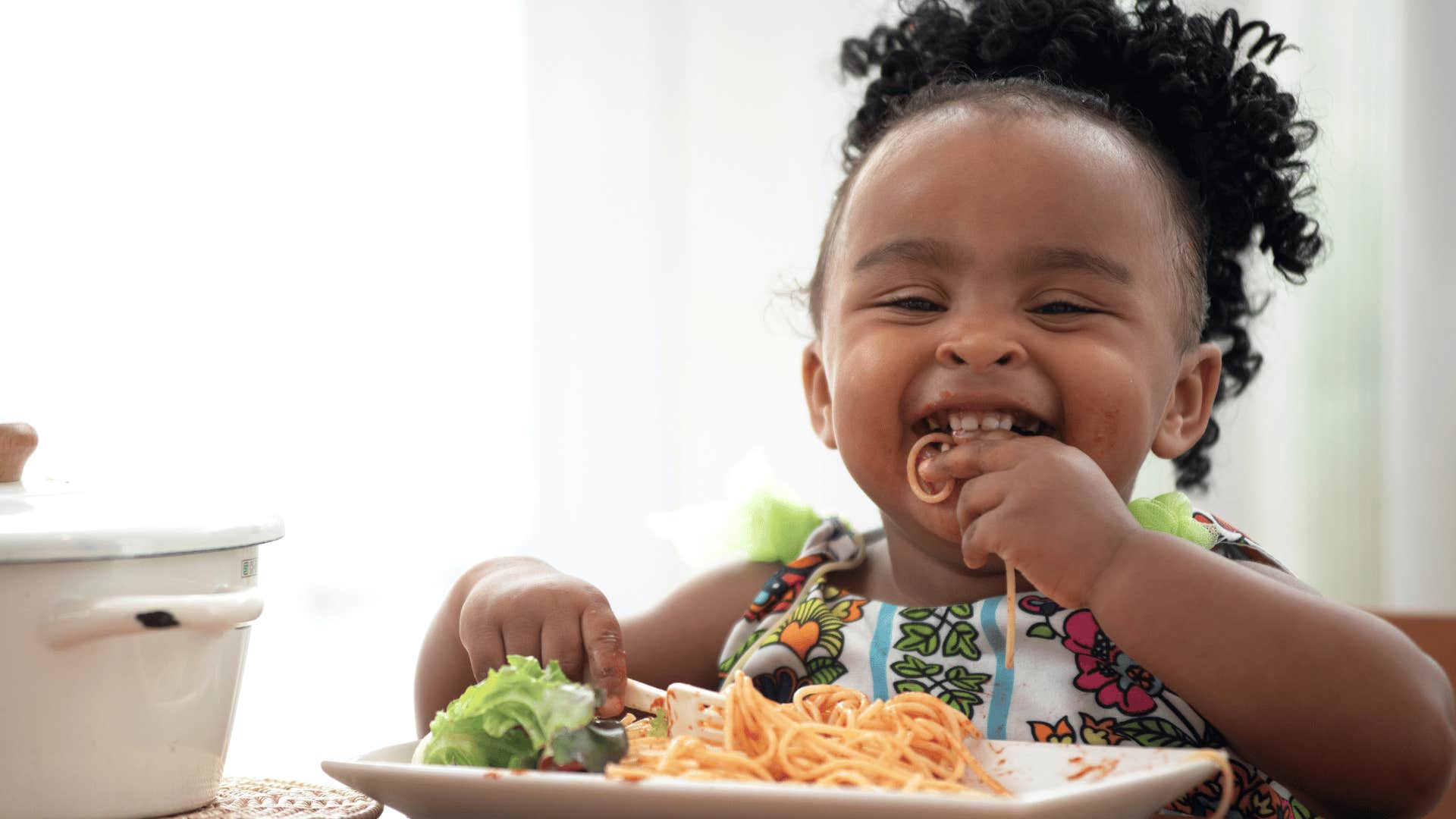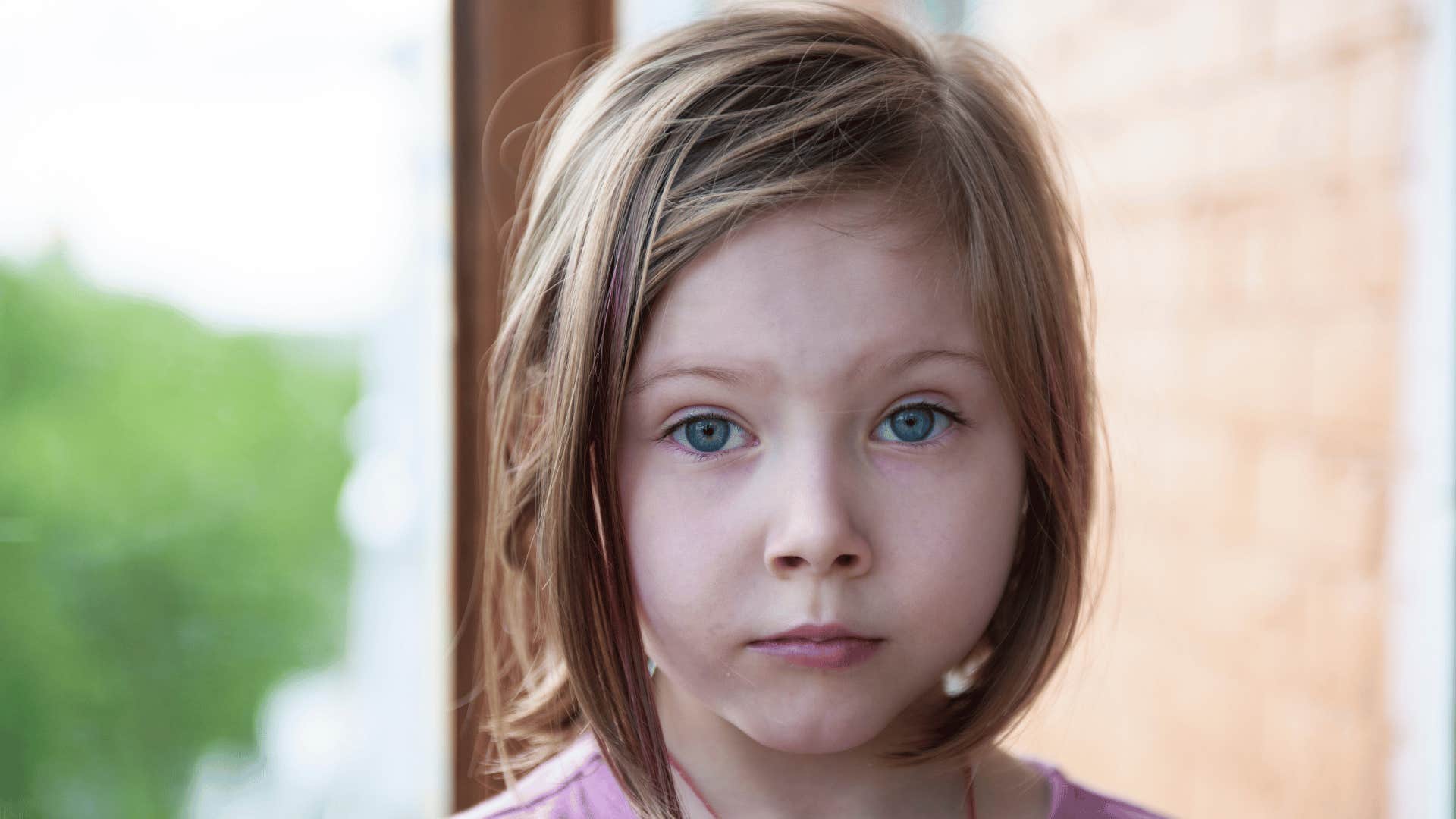Experts Reveal 6 Outdated Parenting Phrases That Can Be Seen As Abusive
Some classic parenting catchphrases haven’t aged well.
 AstroStar | Shutterstock
AstroStar | Shutterstock Outdated doesn't always mean bad. Often, we realize something is outdated because we have found a better, more improved way. This is true of technology and parenting.
Outdated parenting can also include abusive behaviors and attitudes. Maybe the parents were just "following the ways of the times," or "doing what their parents did to them." Then some of those kids started studying psychology and human behavior, some of those kids became counselors and therapists, and a lot of those kids discovered that some of the ways they were raised don't work anymore for their children.
Here are outdated parenting phrases that can be seen as abusive, according to experts:
1. 'There's nothing to be scared of'
 Chay_Tee via Shutterstock
Chay_Tee via Shutterstock
Family coach Renee Jain wishes she could have said, "Daddy, remember the first time you asked Mommy out on a date? Remember your first day at a new job? Or remember the time when you got in that bike accident? Maybe your parents knew everything was going to be OK, too, but you didn't know that. You experienced real fear. My fear is real too."
Anxiety initiates a fear alarm inside your child's mind and body. It's a false alarm, but it feels very real. That alarm is for protection; your child feels "stress" or "fear" to survive. To make sure one is paying attention, the mind might even exaggerate the object of the worry (e.g., mistaking a stick for a snake).
Try this: Validate your child's emotions. You can say, "I see that you're scared. I've been scared before too, and I know what that feels like."
2. 'You're too sensitive'
 PeopleImages.com - Yuri A via Shutterstock
PeopleImages.com - Yuri A via Shutterstock
Depending on the situation, therapist Gloria Brame knows it may be narcissistic gas-lighting if your parents say something hurtful and then act surprised or angry if you cry or get upset. They act as if being sensitive is a bad thing! They shrug off their accountability for saying something mean. They blame the hurt party for reacting to nasty comments.
The phrase is also considered negative because it implies there is something bad about having deep feelings, particularly feelings your parents disapprove of. There is no such thing as too sensitive.
We now know it's normal for some people to be more sensitive than others, and criticizing them for it is a form of parental abuse that negates a child's fundamental right to be themselves.
3. 'Clean your plate'
 chomplearn via Shutterstock
chomplearn via Shutterstock
This doesn’t save food but it does create unhealthy eating habits, advises certified intuitive eating counselor Lisa Newman, Parents are far better off helping children gauge how much food to serve themselves based on their hunger cues while knowing there is enough for second servings if wanted. It is better to occasionally throw out food that turns out to be too much rather than forcing children to eat more than they need.
4. 'My way or the highway'
 Branislav Nenin via Shutterstock
Branislav Nenin via Shutterstock
This reflects authoritarian parenting which is based on power and lacks empathy, warns clinical psychologist Sharon Saline. Being perfect as a parent is a myth that is unachievable and toxic to self-worth.
Perfectionists tend to focus on the result, rather than the process of getting there. They discount the learning that’s happening and fixate on the end goal or the accomplishment. Offer your support, your availability for a conversation, or your willingness to do something of their choice.
Loving them, letting them figure certain things out, and asking for your opinion are more effective for building self-esteem and self-confidence than telling them what to do.
5. 'Stop crying or I'll give you something to cry about'
 Alexey Kompaniychenko via Shutterstock
Alexey Kompaniychenko via Shutterstock
Counselor Larry Michel has seen how this phrase taught children that expressing emotions is dangerous and could lead to more punishment. Over time, it can cause emotional repression and difficulty processing feelings in adulthood.
6. 'I'm so disappointed in you'
 Pics Five via Shutterstock
Pics Five via Shutterstock
When it comes to raising kids, counselor Claire Waismann knows there are a lot of things that parents should never say. For example, phrases like "I'm so disappointed in you" or "You're such a burden" can do tremendous damage to a child's self-esteem.
Instead, try to use phrases that will encourage your child and help them to feel good about themselves. For instance, you might say something like "I know you're trying your best" or "I'm proud of you for (fill in the blank)."
Of course, every child is different, so it's important to tailor your words to fit your individual child's needs. But by using positive language, you can help your child to feel valued and loved — which is one of the most important things any parent can do.
Will Curtis is a creator, editor, and activist who has spent the last decade working remotely.

